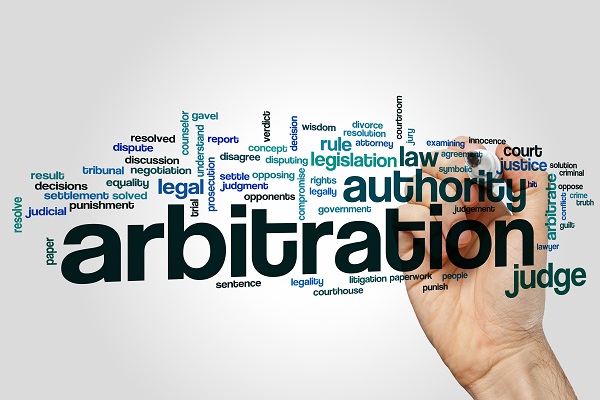The U.S. Court of Appeals for the Fifth Circuit recently reversed the denial of a lender’s motion to compel arbitration in an adversary bankruptcy proceeding for allegedly violating the federal Truth in Lending Act (TILA), holding that -- despite conflicting clauses in two different relevant agreements -- the parties had entered into a valid arbitration agreement that delegated the threshold issue of arbitrability to the arbitrator.
Posts published in “Arbitration & ADR”
The U.S. Court of Appeals for the Fifth Circuit recently affirmed a bankruptcy court order denying a bank’s motion to compel arbitration, holding that when a debtor seeks to enforce a discharge injunction, a bankruptcy court may decline to compel arbitration because it implicates a bankruptcy court’s ability to enforce its own orders. A copy of the opinion in Henry v. Educational Financial Service is available at: Link to Opinion. A borrower took out a student loan and subsequently filed for Chapter 13 bankruptcy. The bankruptcy court confirmed the plan. The borrower made the payments to her creditors, including her…
The U.S. Court of Appeals for the Eleventh Circuit recently affirmed the denial of a lender’s motions to dismiss and to strike a complaint filed on behalf of a class of borrowers who entered into loan agreements with the lender and its affiliates. In so ruling, the Eleventh Circuit held that the loan agreements’ forum selection clause and class action waivers were unenforceable under Georgia’s Payday Lending Act and Industrial Loan Act, as enforcement would undermine the purpose and spirit of Georgia’s statutory scheme including to preserve class actions as a remedy. A copy of the opinion in Davis v.…
The U.S. Court of Appeals for the Eighth Circuit recently affirmed the denial of a lender’s motion to compel arbitration over a suit filed by a former employee alleging violations of the federal Fair Labor Standards Act (FLSA). In so doing, the Court held that the former employee’s mere review of the employee handbook, and the arbitration and delegation provisions therein, did not constitute acceptance of the relevant clauses, and without acceptance no valid contracts to arbitrate their disputes or delegate the decision to an arbitrator were formed. A copy of the opinion in Shockley v. PrimeLending is available at: …
The Supreme Court of New Jersey held that where a plaintiff challenges the validity of a transaction as a whole and not specifically the arbitration agreement that is included as part of a transaction, the plaintiff must arbitrate their claims because an arbitration agreement is severable and enforceable, notwithstanding a plaintiff’s general claims about the invalidity of the transaction as a whole. Accordingly, the judgment of the appellate court was reversed and the trial court orders compelling arbitration were reinstated. A copy of the opinion in Goffe v. Foulke Management Corp. is available at: Link to Opinion. The plaintiffs each purchased cars…
In a 5-4 decision, the Supreme Court of the United States recently held that under the Federal Arbitration Act (FAA), an ambiguous agreement cannot provide the necessary contractual basis for concluding that the parties agreed to submit to class arbitration. Accordingly, the contrary ruling of the Ninth Circuit was reversed and the matter was remanded to the trial court for further proceedings. A copy of the opinion in Lamps Plus, Inc. v. Varela is available at: Link to Opinion. The defendant company sells light fixtures and related products. In 2016, a hacker impersonating a company official tricked a company employee into…
The U.S. Court of Appeals for the First Circuit recently affirmed dismissal of a putative class action lawsuit that challenged the company’s arbitration clause. The Court rejected the named plaintiff’s primary argument that the arbitration clause’s arbitration-fee-splitting arrangement was unconscionable and unenforceable, because the trial court was allowed to consider the defendant’s offer to pay for the full costs of arbitration, thus rendering the clause enforceable under Massachusetts’ Wage Act, because the potential costs of arbitration were less than the cost of potential recovery. A copy of the opinion in Bekele v. Lyft, Inc. is available at: Link to Opinion. In…
The District Court of Appeal for the Third District of Florida recently reversed a trial court’s order denying a defendant’s motion to compel arbitration, holding that monthly text messages with a hyperlink to the defendant’s terms of service provided the consumer with sufficient notice that disputes regarding his relationship with the defendant were subject to arbitration. A copy of the opinion in MetroPCS Communications, et al. v. Jorge Porter is available at: Link to Opinion. A consumer filed a putative class action lawsuit against his cellular telephone provider alleging that it improperly charged the consumer and other customers sales tax on the…
The U.S. Court of Appeals for the Seventh Circuit recently joined the Fourth, Sixth, Eighth, Ninth, and Eleventh Circuits, in ruling that class or collective arbitrability is a gateway question that is presumptively for the court to decide, rather than the arbitrator. In so ruling, the Court vacated the trial court’s order enforcing a $10 million federal “wage and hour” Fair Labor Standards Act arbitration award against the defendant. A copy of the opinion in Herrington v. Waterstone Mortgage Corporation is available at: Link to Opinion. The plaintiff filed a putative class and collective action against her former employer. She alleged…
The U.S. Court of Appeals for the Seventh Circuit held that a defendant waived its right to arbitrate due to its “gratuitous delay” in seeking arbitration, where it waited 13 months after the filing of the lawsuit before moving to compel arbitration, and that any showing of prejudice to the non-moving party was not required. Accordingly, the Seventh Circuit affirmed the trial court’s ruling denying a motion to compel arbitration. A copy of the opinion in Smith v. GC Services Limited Partnership is available at: Link to Opinion. The plaintiff applied for and received a credit card from a bank. The credit…
The Supreme Court of Missouri recently affirmed the denial of a lender’s motion to compel arbitration of a consumer’s putative class claims because the arbitration provision at issue designated the use of a specific arbitrator which was no longer available to handle creditor claims. A copy of the opinion in A-1 Premium Acceptance, Inc. v. Hunter is available at: Link to Opinion. Following the borrower’s default under a small personal loan, the lender brought an action in Missouri state court for collection of the debt. The borrower filed counterclaims against the lender for alleged violations of the Missouri consumer protection statute and requested…
The U.S. Court of Appeals for the Seventh Circuit recently held that the minor child of a credit card account holder was not bound by the arbitration clause in the cardholder agreement because she did not become an authorized user of the account by using the credit card. The Seventh Circuit also held that the doctrine of estoppel did not bind the minor to the arbitration clause because the minor did not “directly benefit” from her parent’s use of the credit card. A copy of the opinion in AD v. Credit One Bank, NA is available at: Link to Opinion. In…











